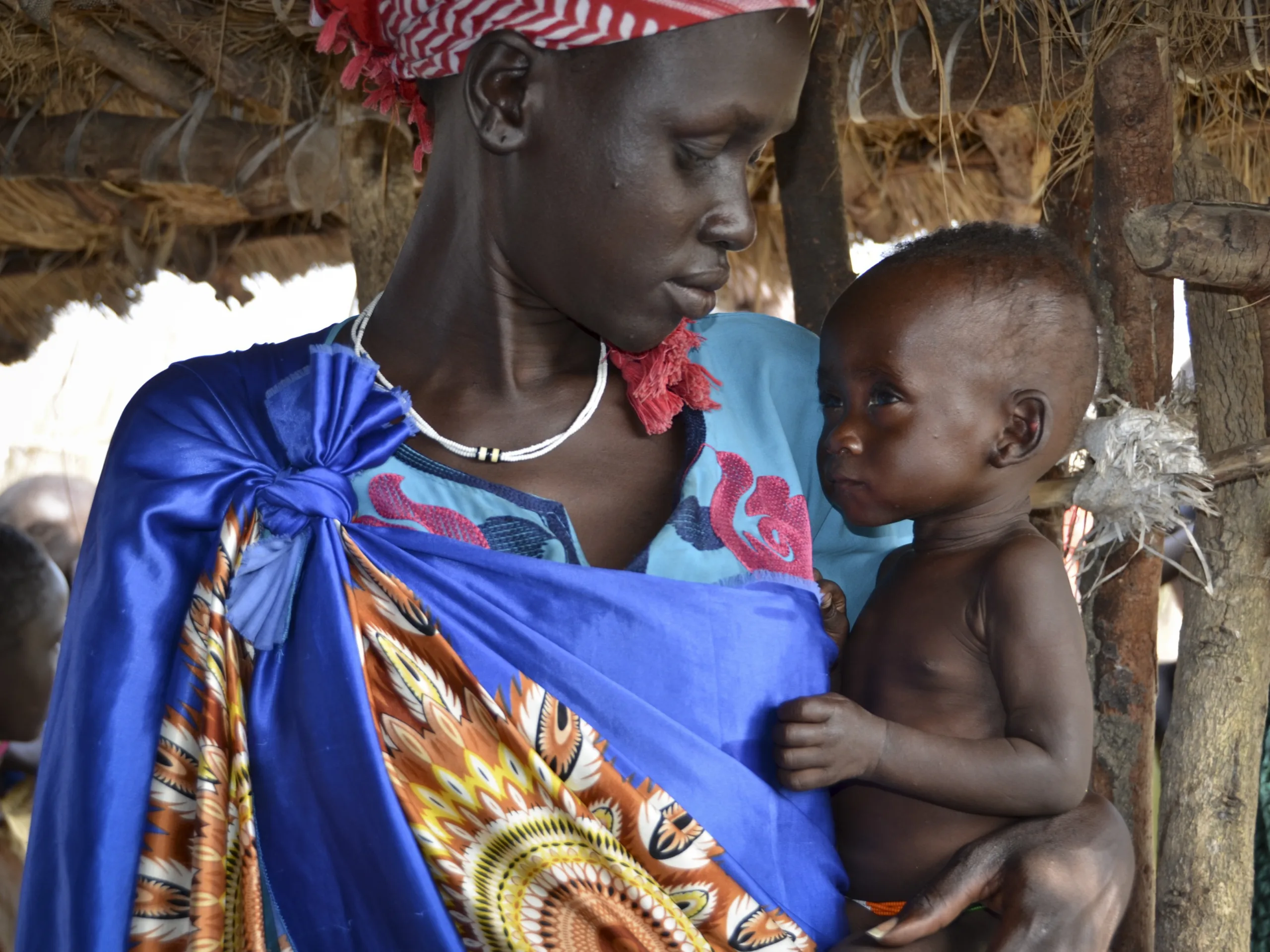The war in Sudan erupted on April 15, 2023. It has doomed the nation and has become one of the world’s most severe humanitarian crises. What began as a violent power struggle between the Sudanese Armed Forces (SAF) and the paramilitary Rapid Support Forces (RSF) has escalated into a devastating conflict marked by widespread atrocities, mass displacement, and the collapse of essential services.
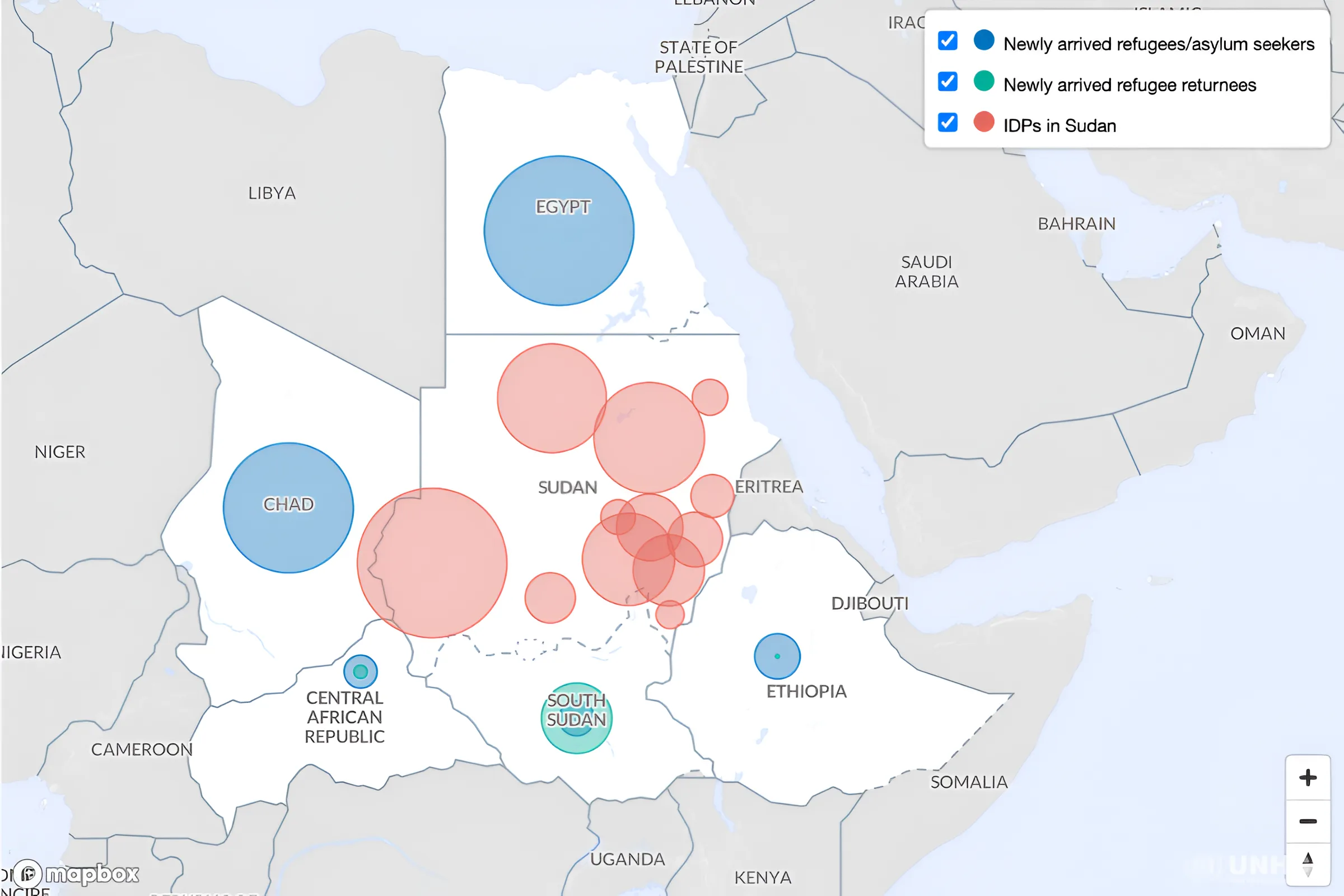
Over the past two years, the fighting has forced more than 14 million people, which is nearly a third of Sudan’s population, to flee their homes, while tens of thousands have been killed or injured in relentless attacks across the country. Both sides have been accused of war crimes, including extrajudicial killings, sexual violence, and the deliberate targeting of civilians and aid workers, fueling what the United Nations has called one of the world’s worst humanitarian disasters.
One should know that Sudan, as a country, faces various environmental challenges such as floods and droughts. Therefore, these environmental challenges, plus the triggered political and economic conflict, has reignited the communal conflicts leading to movement of people from their home country. As the conflict enters its third year, Sudan’s future remains uncertain, with millions facing acute hunger, disease, and the daily threat of violence.
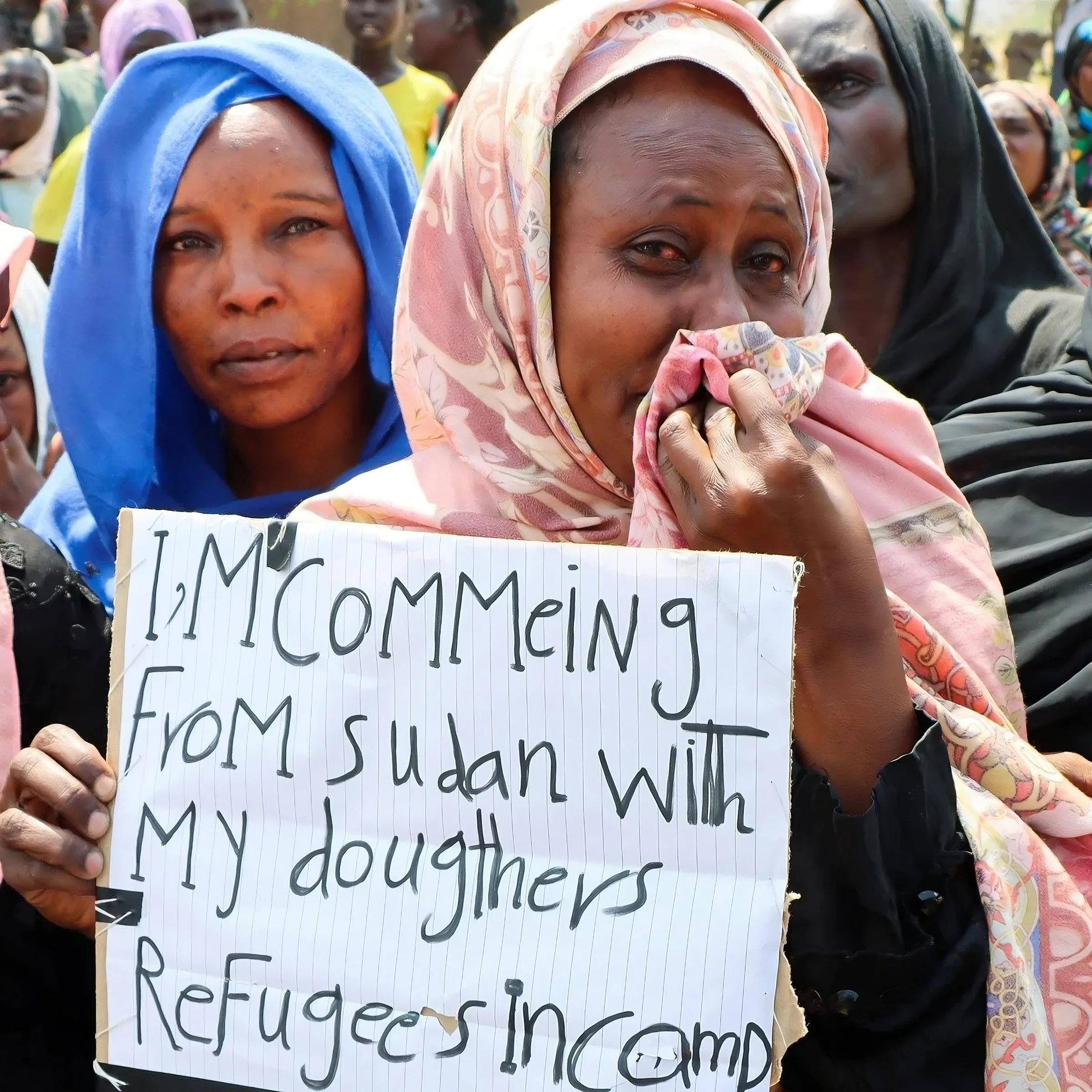
Below are some real-life stories of women who faced hardships while they were in Sudan and also when they were fleeing from their home country.
RAPE: A WEAPON OF WAR
HANIA
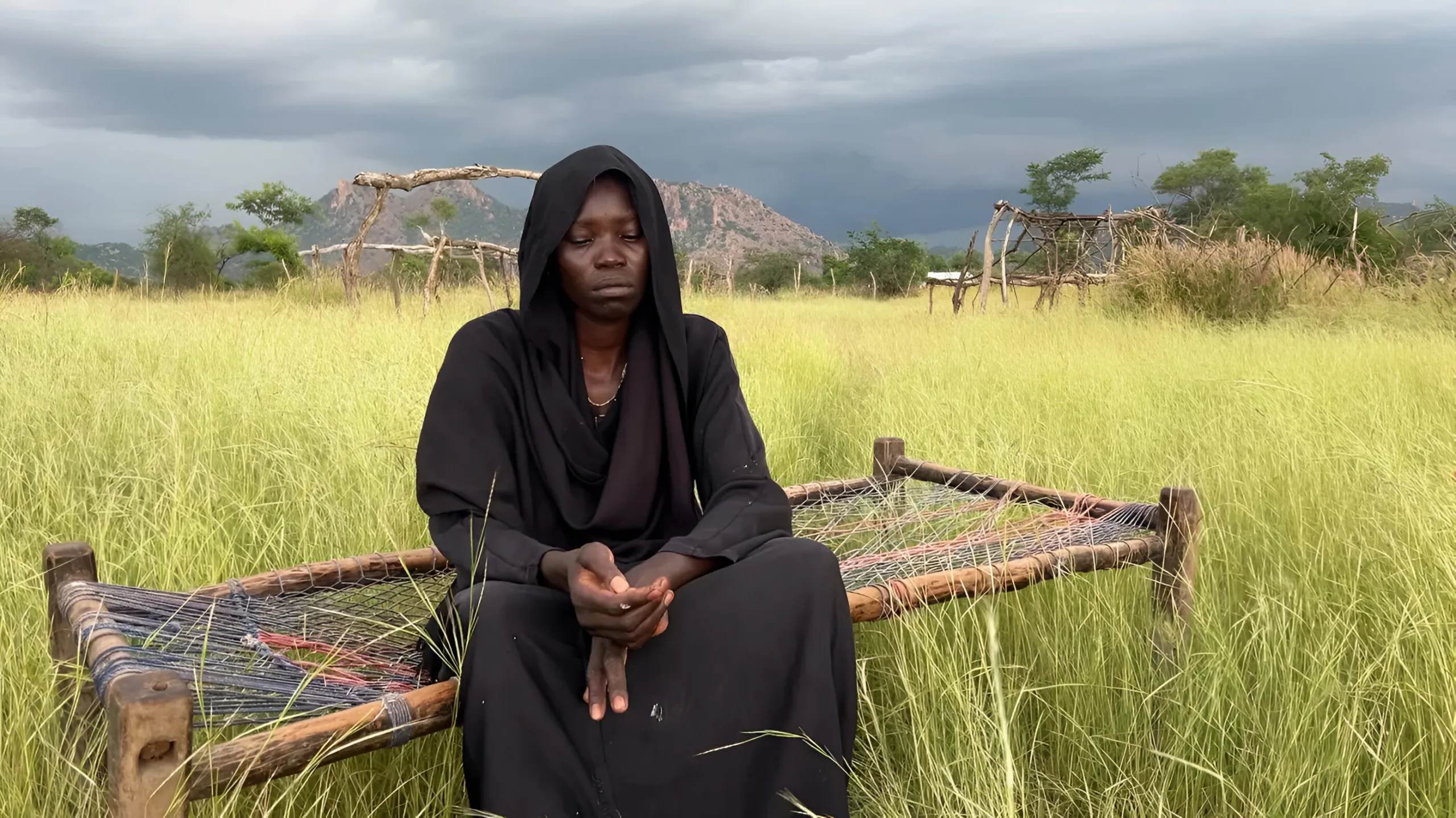
Hania, a 35-year-old ethnic Nuba woman (a term used in Sudan , which either means rebels or non-Arabs), said six RSF fighters in beige uniforms stormed into her family compound, with one man saying, “You Nuba, today is your day.” The men then gang raped her. She said that her husband and her son tried to defend her, but one of the RSF fighters shot them, then and there. After that they started raping her, all six of them. She called herself survivor, who was being gang raped, in front of her families for a prolonged periods of time, while being held as sex slave by RSF fighters. She says that the RSF has allied with Arab militias. They are solely focused on brutalizing certain ethnic groups which includes the Massalit and the Nuba. People from these communities are killed, injured, tortured, detained, and raped. They also destroy the homes of these civilians, and loot their possessions. She also said that, while these men used to rape women, they used to say ‘These Nuba are our slaves, we can do anything we want,’. The way they used to rape and torture people from specific communities, it seems as if the process of ethnic cleansing was going on. Women were asked to lay outside in the streets at night. Sometimes, when a woman came late from the market, RSF would keep her with them for 5-6 days. Today she is happy that she has migrated from Sudan, after facing all the difficulties.
MARY KAK
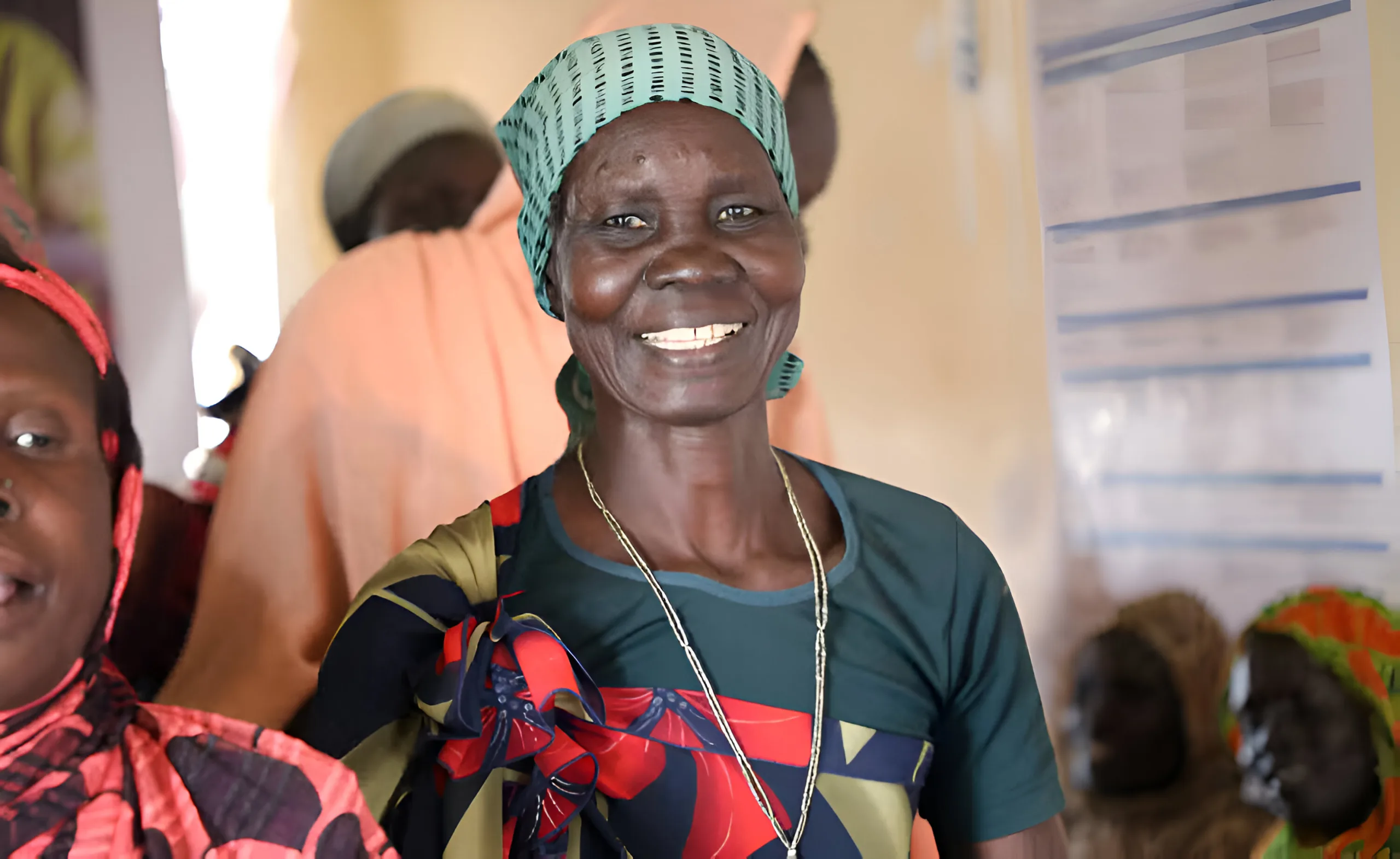
Ms. Mary Kak, 55, departed from her residence in Upper Nile State more than a decade ago to flee the approaching civil conflict. However, the mother of seven had to retrace her steps, as conflict broke out in her new residence of Khartoum in neighboring Sudan. With armed forces monitoring the roads, she spent several days walking, the threat of being raped, attacked, or assaulted weighing heavily on her thoughts. Even though it was a lengthy and challenging path, she says that, “It was more secure that way.” She tells that the persistent, unyielding climate disturbances are especially impacting women and girls in South Sudan. With the lack of sufficient protection measures, women face the danger of being forced into sex work, trafficked, or sexually assaulted as they travel long distances, often alone, in pursuit of food, water, and employment. Today, Ms. Mary Kak is stringing beads together, creating jewelry she intends to sell later at a market in Renk, a border town located in South Sudan’s Upper Nile State.
MIRIAM
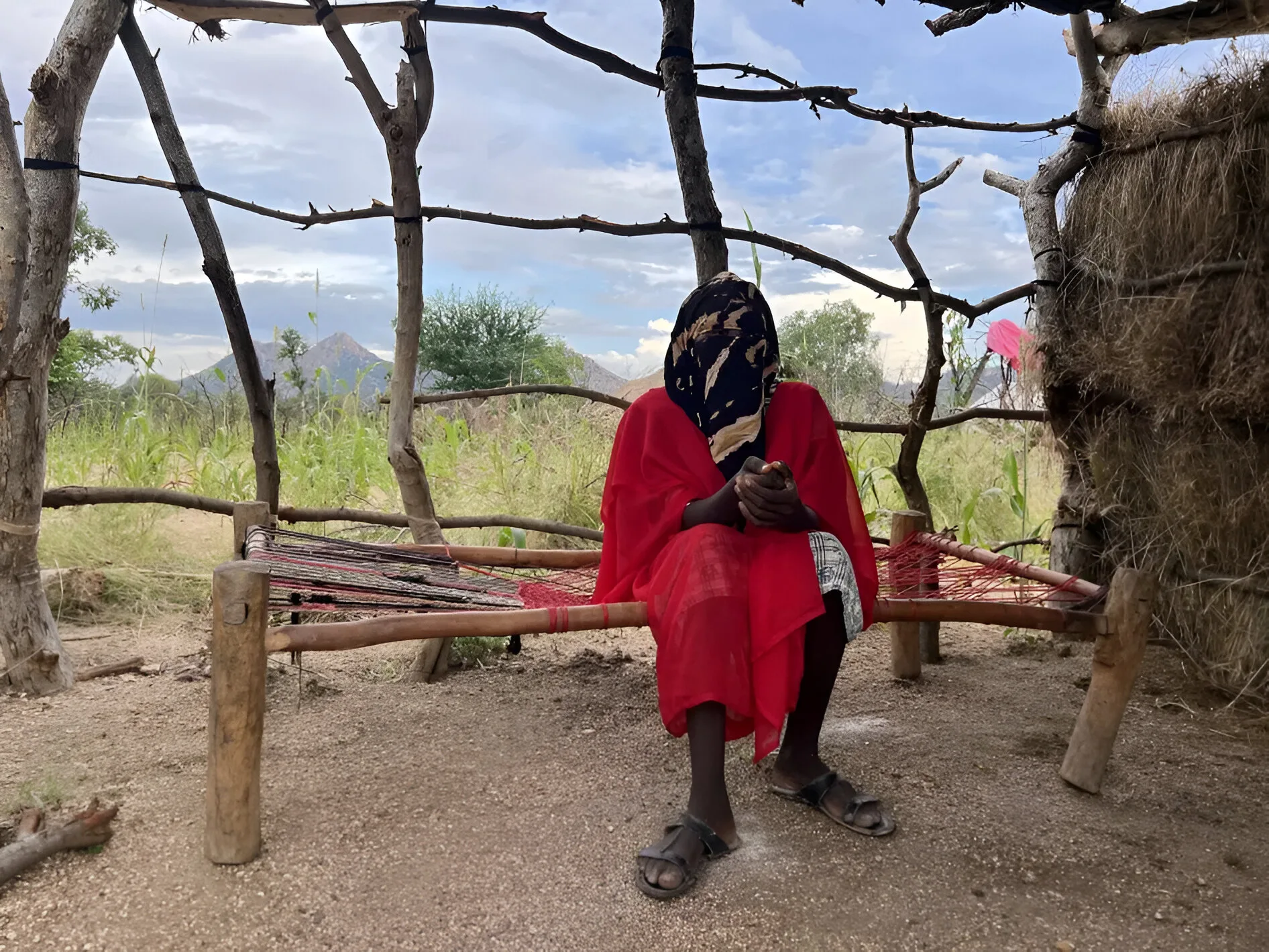
Miriam (not her real name), a survivor of sexual assault, states that women only face difficulties because they must provide for their children. Currently, she is running a small tea stall, but during the conflict, two men broke into her home and attempted to assault her daughters, aged 17 and 10. She requested her daughters to stay away and requested the men to rape her and do not touch her children. She claims that she was hit badly and then asked to take off her clothes. Before taking off her clothes, she requested her daughters to exit the house. She mentioned that people were roused by screams and wanted to find out what was happening, but the armed individuals warned them they would be shot if they did not return to their homes. She also mentioned her husband, who was beaten to death and all his money was taken. Miriam says that “Rape has always been used as a weapon of war” and time was unfortunate, that’s why she suffered.
ACHAN
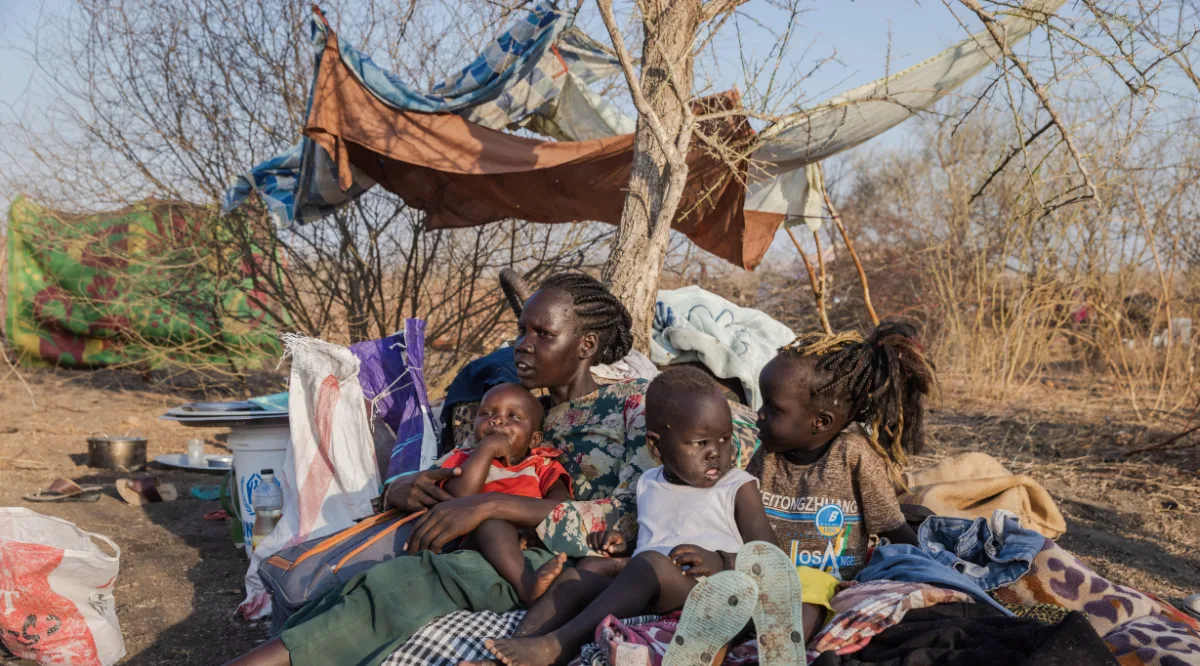
Achan is outside the UNHCR transit center in Renk, South Sudan, with three of her six children, Deng, 1, Agook Akech, 3, and Acel Akech, 5, because there isn’t enough space inside the center. Achan and her six kids began a risky and unpredictable five-day trek from Sudan, crossing the frontier into South Sudan looking for safety. “She said that they encountered numerous problems during our journey. She is very sad that she had to witness all this with her children. She says that “I couldn’t remain in Khartoum with my kids; it was very unsafe.” “Thus, we selected this path.” Today, Achan is concentrating on her family’s future. They intend to find safety in Warrap state, about midway through the country from Renk. She is committed to locating a secure area with sufficient room for her family. She says that she will leave with her family, once they find a way.
NYA
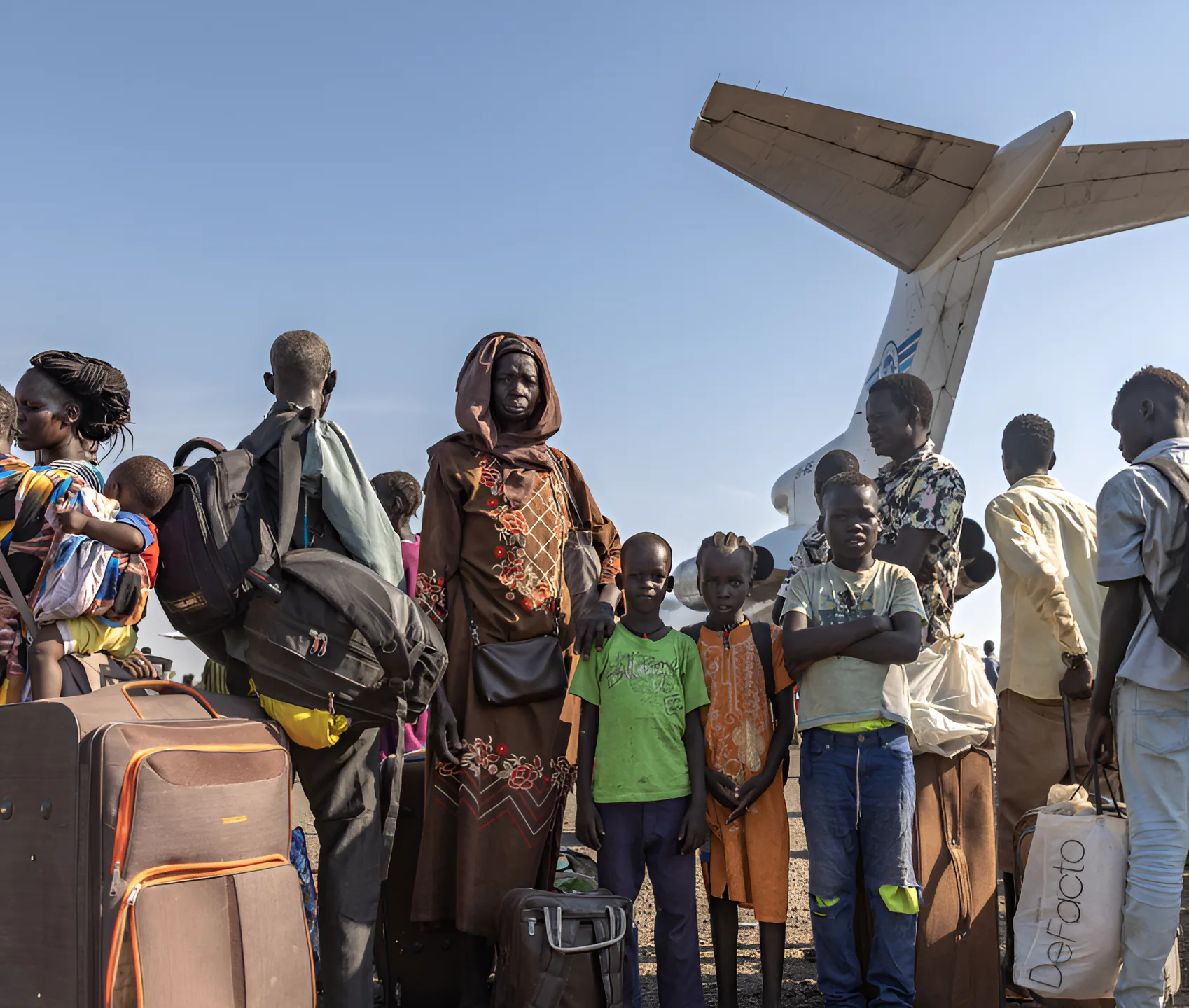
Nya and her kids have been waiting at Palouch airport in South Sudan for three days, hoping to secure spots on the planes run by the South Sudanese government that transport refugees escaping Sudan to various locations within the state. Countless families similar to Nya’s are awaiting their flight to safety at the airport. Before departing Khartoum, Nya mentions that she observed corpses on the ground. She now expresses her happiness about returning to her homeland. While secure, families going back to South Sudan will encounter fresh challenges as they adapt to their new neighborhoods. Food costs in the nation are elevated and job prospects primarily exist in the farming sector. With the nation’s infrastructure unable to meet the demands of millions of returning citizens and refugees, humanitarian aid will be essential for the foreseeable future.
War turns lives completely upside down. It uproots families, destroys infrastructure and disrupts food production. Shortage of food, and its affordability can lead to even more violence and unrest. According to the United Nations, Sudan has the world’s largest Child Displacement Crisis. Here, children are deprived of education. More than 90% of the country’s children have no formal education. Also, as per UN estimates, more than 3 million women and girls are at a risk of gender-based violence. Multiple attacks on healthcare facilities are depriving women and girls from the care they could have received.
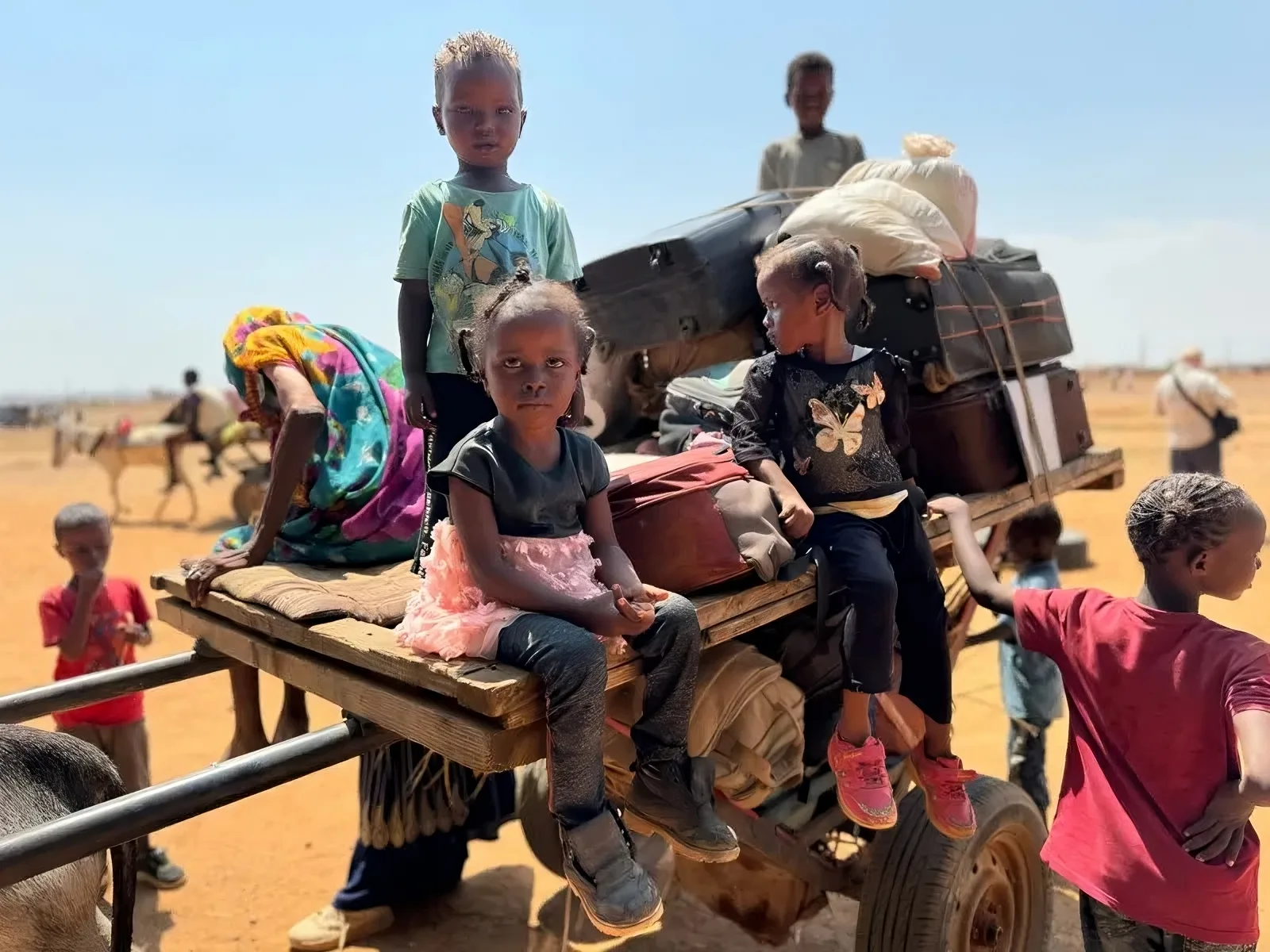
Each day, the problems are growing for Sudan and its citizens. The UN states that a struggling nation such as Sudan can sustain war for over two years solely due to support from other nations. Also UN experts claim that throughout the conflict, the RSF has received support from nearby African nations such as Chad, Libya, and South Sudan. The RSF has been accused of receiving arms from the United Arab Emirates (UAE), but the Gulf country has rejected any claims of involvement. Last year, both the UK and the US specifically named the UAE in individual calls for foreign nations to cease their support for the conflicting factions in Sudan. The main concern right now is that the Sudan Civil War is not receiving international media coverage, unlike what happens with other countries. Global conflicts have turned into a contest, and Sudan’s humanitarian disaster is absent from that list.


